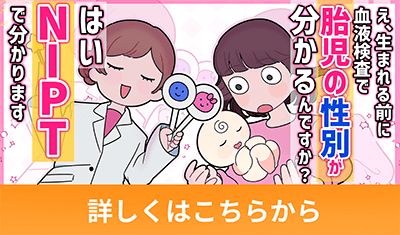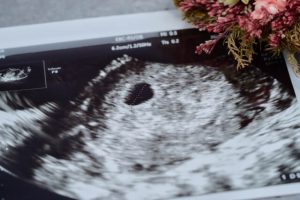Summary of this article
NIPT can confirm whether a baby in the womb has a chromosomal disorder. The test is not only carried out in Japan, but also in other countries. This article explains the situation of NIPT in each country and whether there are differences between NIPT in Japan and overseas.
NIPT can confirm whether a baby in the womb has a chromosomal disorder. The test is not only carried out in Japan, but also in other countries. This article explains whether there are differences between NIPT in Japan and overseas and the situation of NIPT in each country.
Diseases that can be detected by tests
NIPT is a test to ascertain whether the baby in the womb has a chromosomal disorder. It is called a prenatal genetic test and is carried out using blood taken from the mother during pregnancy. The mother’s blood contains the baby’s DNA. The test is attracting attention as it can confirm foetal chromosome abnormalities without directly affecting the baby.
As the NIPT test is a screening test, a positive result does not rule out a chromosomal abnormality. However, as the test can be performed as early as approximately 6 weeks of pregnancy or later, it is recommended to undergo the test early and, if a positive result is obtained, to have an amniotic fluid test for a definitive diagnosis.
Diseases that can be detected by tests
The chromosomal disorders tested for are 13, 18 and 21 trisomies (Down syndrome). Results are notified as ‘positive’, ‘negative’ or ‘decision pending’. A positive diagnosis indicates a high probability that the disease is present. If the decision is withheld, you should consult your doctor again about how to respond. Note that trisomy is a condition in which there are three chromosomes, which normally exist in pairs.
The frequency of births of babies with trisomy increases with the age of the pregnant woman. For pregnant women who are concerned about their age, a NIPT test is one way to prepare themselves.
The situation of NIPT abroad
This section describes the situation of NIPT outside Japan. NIPT is a test that is carried out not only in Japan but also in other countries. Let’s look at the costs and insurance for NIPT conducted overseas.

NIPT situation in the USA
In the USA, it was introduced in 2011 and 25-50% of pregnant women have undergone the procedure. The latest guidelines from the American College of Obstetricians and Gynaecologists recommend that NIPT should be offered to all pregnant women, regardless of risk level.
Coverage is available through many private insurance companies, and NIPT coverage is available for those who are identified as high-risk during early pregnancy screening tests. Some states also have public medical assistance schemes for pregnant women who are not at high risk. Because of the availability of insurance coverage, NIPT is spreading as a routine test.
In the USA, abortion is legal in many states up to 24 weeks’ gestation. However, some states prohibit abortion if the foetus is diagnosed as having a genetic condition, including 21 trisomy (Down syndrome).
In the USA, a positive NIPT diagnosis is followed by specialist counselling and an explanation about the definitive diagnosis. They also provide an introduction to what you will need and the support you can receive if you give birth to a baby with a chromosomal disorder.
NIPT situation in the UK
National policies towards prenatal screening tests are being developed across Europe. In the UK, NIPT is also offered as a secondary test for pregnant women who are identified as high-risk by screening tests. The reason why screening tests are recommended for all pregnant women is to increase women’s opportunities for voluntary choice.
Since 2021, the NIPT test and related definitive tests have been available free of charge, so many pregnant women are actively testing. In the UK, abortion for reasons of foetal abnormality is legal and the costs are covered by the state. Abortions can be carried out even just before delivery, as long as it is under the judgement of several doctors.
NIPT situation in France
It has been introduced in France since 2011; from 2019, it is covered by medical insurance for high-risk pregnant women and is free of charge. Criteria for high-risk pregnant women include a high probability of chromosomal disease in the foetus or a family history of chromosomal disease in a combined test of maternal serum markers, the pregnant woman’s age and NT, called the Quattro test. The Quattro test itself is offered free of charge to all pregnant women.
In France, abortion procedures are also covered by insurance and can be performed free of charge. Abortion on the grounds of foetal abnormality is also permitted. Therefore, 95% of pregnant women who are found to have Down’s syndrome during NIPT choose to have an abortion. Abortion is possible regardless of the number of weeks of pregnancy with a doctor’s certificate.
NIPT situation in Australia
In Australia, anyone who is pregnant can undergo NIPT without any conditions. Therefore, your doctor may recommend NIPT even if there are no abnormalities in your pregnancy examination.
However, as it is not covered by insurance, all testing costs are actual costs. Test results are available in around one week. Abortion is legal in all Australian states. Abortion is possible at the mother’s will up to 22 weeks’ gestation, and after 22 weeks, abortion is possible under the consent of two or more doctors.
NIPT situation in Germany
Germany introduced NIPT in 2012. Public services for pregnant women have been available for some time, and the costs of prenatal screening tests and deliveries are covered by the public purse; from 2020, NIPT will also be available through public insurance.
In Germany, abortions can be performed up to 12 weeks’ gestation after a three-day waiting period at an authorised counselling institute if the woman wants to have an abortion. In addition, according to the law, free counselling centres have been set up throughout the country, where pregnant women can easily seek help and advice on abortion.
If the baby is found to have a disability, the doctor is obliged to refer the woman to a pregnancy conflict counselling centre. In Germany, it has been prohibited to choose abortion on the grounds of foetal disability since the repeal of the fetal clause in 1995. However, in practice, due to an expansive interpretation of the law, 90% of cases with a positive NIPT test result are aborted.
NIPT situation in Netherlands
In the Netherlands, NIPT is available to all pregnant women regardless of pregnancy risk, but the actual uptake rate is not high at 40%. It is thought that the low uptake rate is due to the fact that the test is partly subsidised but partly self-paid, and the low uptake rate of foetal screening tests prior to the start of NIPT.
In addition to testing for 13, 18 and 21 trisomies, the Dutch NIPT can also test for other autosomal aneuploidies and microdeletions. However, sex chromosome aneuploidy is not analysed. Abortion on the grounds of foetal anomalies is legal in the Netherlands and there is no restriction on the number of weeks of pregnancy.
NIPT situation in Belgium
In Belgium, all pregnant women, regardless of pregnancy risk, can undergo NIPT at public expense. As a result, the uptake rate is very high, with more than 75% of pregnant women taking the test.
In addition to testing for 13, 18 and 21 trisomies, it is also possible to test for other autosomal aneuploidies, microdeletions and sex chromosome aneuploidies. Abortion on the grounds of foetal abnormality is legal and there are no restrictions on the number of weeks of pregnancy.
Hiro Clinic offers NIPT
In some countries overseas, NIPT is covered by insurance and is free of charge for everyone. In some countries, it is actively conducted as a routine test, and the actual situation and information varies from country to country. In Japan, NIPT testing and genetic counselling fees are not covered by insurance. Although it is at your own expense, if you want to detect genetic disorders at an early stage and reduce anxiety during pregnancy, you should consider having the test carried out at a hospital.
HIRO Clinic offers Early NIPT, which enables early detection and diagnosis. The test can be performed as early as approximately 6 weeks of pregnancy or later, so you can reduce anxiety as early as possible in your pregnancy. In addition to 13, 18 and 21 trisomy chromosomal disorders, Hiro Clinic’s NIPT can also test for sex chromosome aneuploidy, total autosomal aneuploidy, partial deletion duplication, microdeletion and single gene disorders. For more detailed chromosome testing, please contact us.
【References】
- NIPT | National Institute of Child Health and Development
- NIPT instructions (A4 version)
- The state of NIPT in Europe – Noninvasive prenatal testing (NIPT) – DNA Science
- What percentage of women undergo prenatal diagnosis? – New prenatal diagnosis NIPT Japan
- How does it differ from country to country? NIPT in Japan and abroad – Noninvasive prenatal testing (NIPT) – DNA Science
- New prenatal diagnosis Differences between Europe, the US and Japan | DNA Advanced Medicine
Q&A
-
QAre there any conditions that should be tested for?Anyone can be tested in Japan. Conditions that increase susceptibility to the disease being tested for include.
・Pregnant women of advanced age
. ・Pregnant women who have had a maternal serum marker test that indicates the presence of a chromosome number abnormality in the foetus
. ・Pregnant women who have carried a child with a chromosomal numerical abnormality
. ・Pregnant women in whom one of the parents has a balanced or Robertsonian translocation, which may result in a 13 or 21 trisomy
. ・Pregnant women whose foetus has a possible chromosomal numerical abnormality on fetal ultrasound
. Consider NIPT if any of the above conditions apply. -
QWhat diseases can't be detected on examination?The chromosomal disorders that can be tested for with NIPT are 13, 18 and 21 trisomies. About 3-5 out of every 100 babies born are born with a congenital condition. Of these, about 25% have a chromosome-caused condition. Of the chromosome-caused disorders, 13, 18 and 21 trisomy chromosome disorders account for about 70%. Therefore, NIPT makes it easier to detect probable chromosomal abnormalities.
-
QWhat are the chromosomes examined in the test?Chromosomes are structures in cells that contain DNA and many genes. Most people have 46 chromosomes, made up of pairs of autosomes and pairs of X and Y chromosomes. Chromosomes store the blueprint of a person's body and how it works, so changes in the number or shape of chromosomes can affect growth and development, or cause a person to be born with a disease or physical characteristic.
Article Editorial Supervisor

Dr Hiroshi Oka
NIPT specialist clinic, MD
Graduated from Keio University, School of Medicine
 中文
中文






















